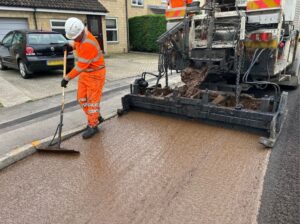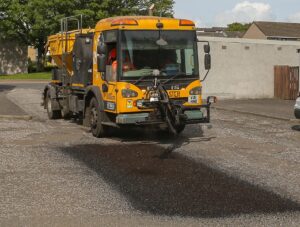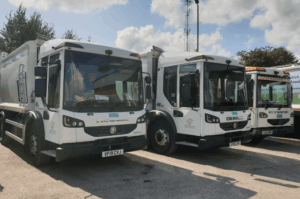The Road Safety Markings Association (RSMA) has welcomed the PIARC (The World Road Association) report ‘Challenges and Opportunities for Road Operators and Road Authorities’, which highlights the importance of road markings in the transition towards the use of autonomous vehicles on road networks.
The PIARC report acknowledges the importance of road markings in allowing autonomous vehicles (AVs) to function and is one of the key reference elements for such vehicles to traverse a carriageway safely, allowing the vehicle to maintain its lane position. The report further clarifies that degraded or missing markings will compromise how and where autonomous vehicles are able to function.
The RSMA has called previously for improved maintenance of road markings and has highlighted that if the UK Government is serious about being a world-leader in AVs, it must provide the funding for road markings to be maintained to a high standard.
Stu McInroy, RSMA Chief Executive, said: “The PIARC report is clear; a successful transition towards operating autonomous vehicles on our networks is dependent on well-maintained road markings.
“It is important also not to forget that for the next 20 years as a minimum, the UK is likely to operate a diverse ‘mixed fleet’ of vehicles and we must be mindful not to ignore the requirements of human drivers when embracing the capabilities of machines. It is highly likely that vehicles will remain driver-controlled and/or ADAS (Advanced Driver Assistance Systems) equipped; an environment where the importance of road markings cannot be understated.
“The Government must act now to provide adequate funding to all road owners to ensure markings are maintained to an appropriate level for both human and machine requirements, and that road markings on all UK road networks are professionally installed and maintained by contractors certified to the National Highways Sector Scheme No. 7 by a UKAS approved body. Only then will the safety and environmental benefits of AVs be met.”
























